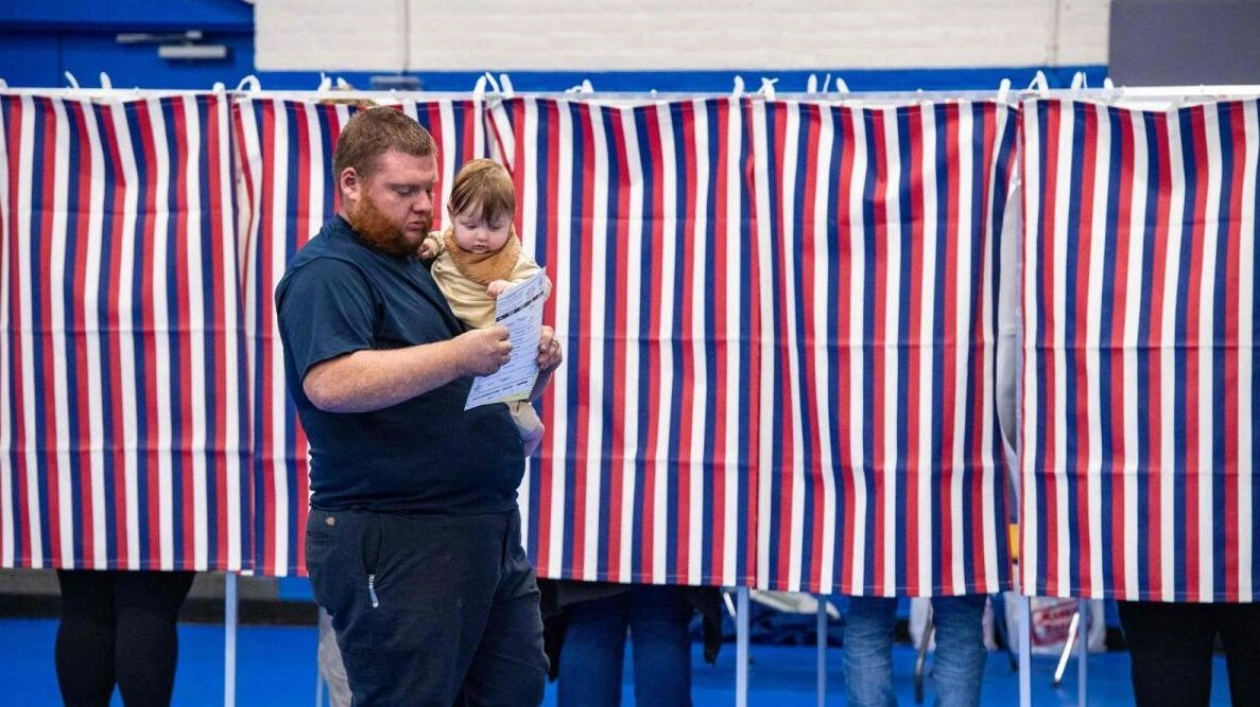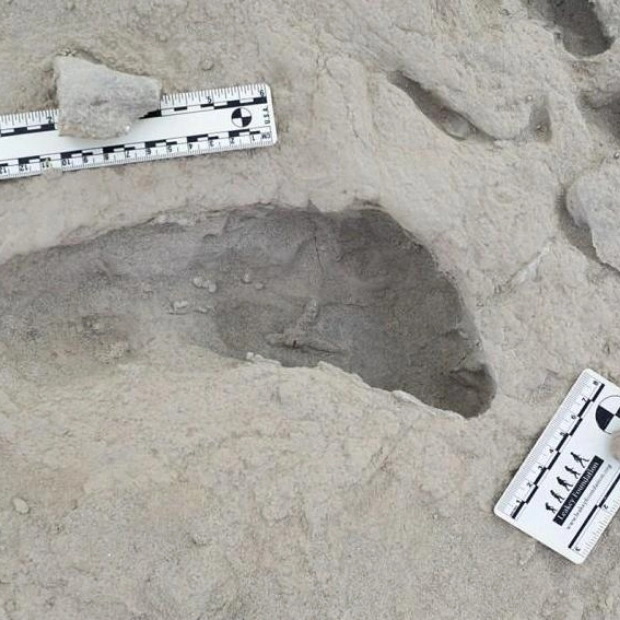Photo: AFP
On Tuesday, as Election Day voting was in full swing, the FBI reported that hoax bomb threats, many originating from Russian email domains, were directed at polling locations in five key states: Georgia, Michigan, Arizona, Wisconsin, and Pennsylvania. The FBI stated that none of these threats had been deemed credible thus far, emphasizing that election integrity remains one of the bureau's top priorities. At least two polling sites in Georgia, both located in Fulton County, were temporarily evacuated due to these hoax threats. After approximately 30 minutes, both sites reopened, and county officials sought a court order to extend voting hours beyond the statewide 7pm deadline.
Georgia's Secretary of State, Brad Raffensperger, a Republican, attributed the Election Day bomb hoaxes to Russian interference. Raffensperger told reporters, "They're up to mischief, it seems. They don't want us to have a smooth, fair, and accurate election, and if they can get us to fight among ourselves, they can count that as a victory." The Russian embassy in Washington dismissed the allegations as "malicious slander," asserting that Russia has not and does not interfere in the internal affairs of other countries, including the United States.
Ann Jacobs, head of the Wisconsin Elections Commission, reported that fake bomb threats were sent to two polling locations in Madison, the state capital, but these did not disrupt voting. Jocelyn Benson, Michigan's Democratic Secretary of State, confirmed reports of bomb threats at several polling locations, though none were found to be credible. Benson's office was informed that these threats might be linked to Russia.
An FBI official revealed that Georgia received over two dozen threats, most concentrated in Fulton County, which includes much of Atlanta, a Democratic stronghold. Police in DeKalb County, Georgia, another Democratic stronghold, responded to bomb threats at eight locations, six of which were polling places and were evacuated. County officials sought an emergency order to extend voting hours at these sites. DeKalb County police later confirmed that no bombs were found at the six voting sites.
A senior official in Raffensperger's office, speaking on condition of anonymity, stated that the Georgia bomb hoaxes were sent from email addresses previously used by Russians attempting to interfere in past U.S. elections. These threats were directed at U.S. media and polling locations. "It's a likelihood it's Russia," the official said.
Adrian Fontes, Arizona's Secretary of State, reported that four fake bomb threats were delivered to polling sites in Navajo County, located in the northeastern part of the state and home to three Native American tribes. The race for the White House between Democratic Vice President Kamala Harris and Republican former President Donald Trump remains tight, with opinion polls indicating a close contest.
In Pennsylvania, a judge extended voting hours to 9pm in Clearfield County after a bomb threat at a vote-counting site disrupted the process. Josh Shapiro, Pennsylvania's Democratic governor, confirmed that multiple bomb threats had been investigated and none were found to be credible, though he did not specifically mention Russia.
These phony bomb threats represent the latest in a series of alleged Russian interferences in the 2024 election. On November 1, U.S. intelligence officials warned that Russian actors fabricated a video falsely depicting Haitians illegally casting ballots in Georgia. Intelligence officials also discovered that the Russians created a separate fake video accusing someone associated with the Harris presidential ticket of taking a bribe from an entertainer. U.S. intelligence has previously accused Russia of interfering in past U.S. presidential elections, particularly the 2016 race won by Trump against Democratic candidate Hillary Clinton.
Source link: https://www.khaleejtimes.com






